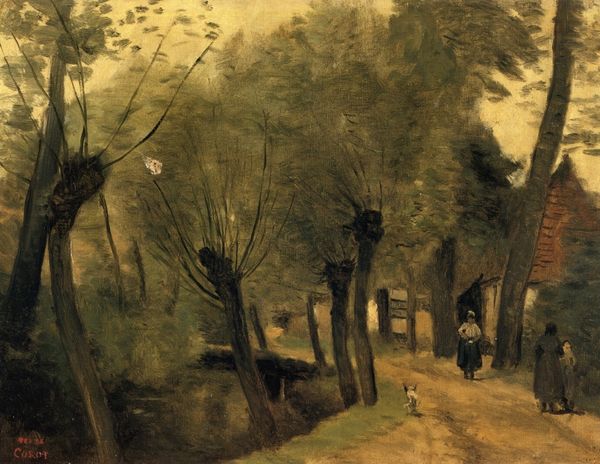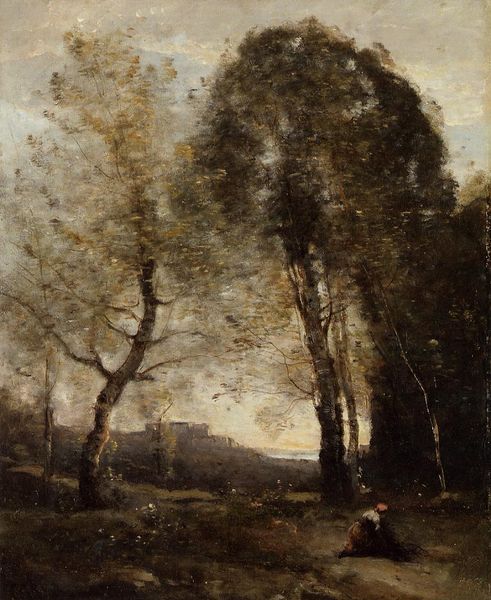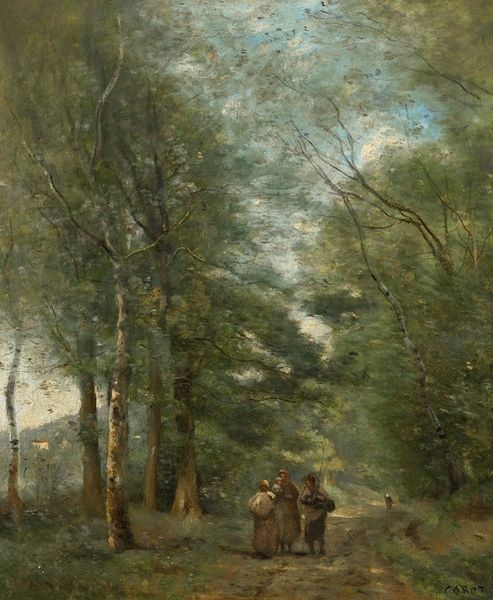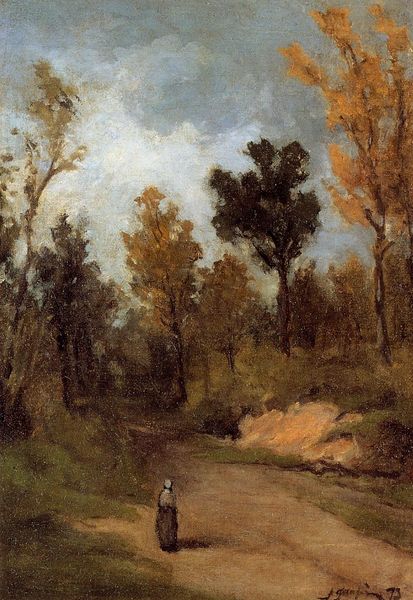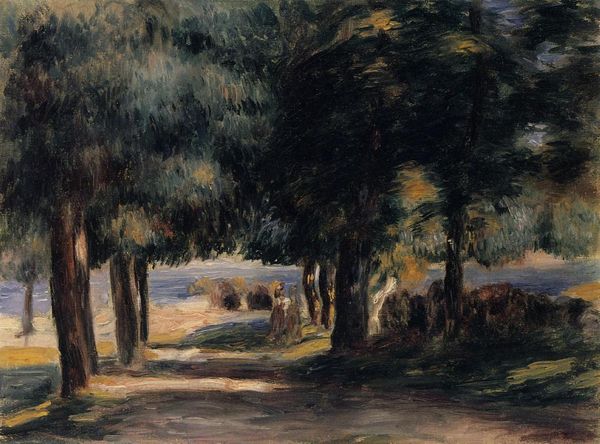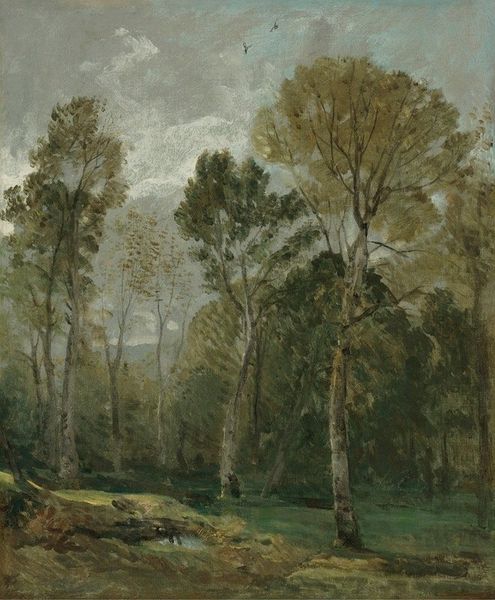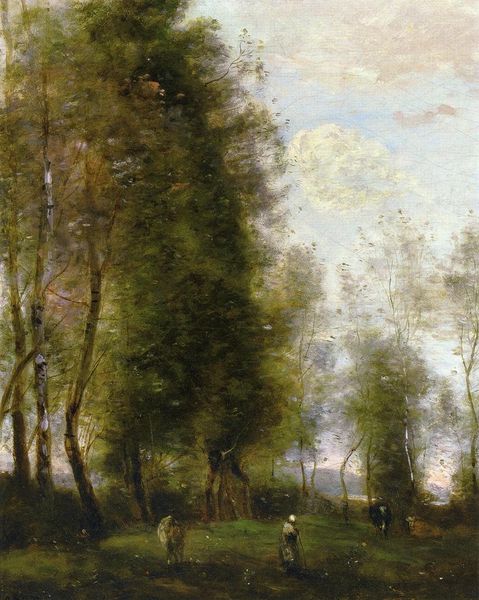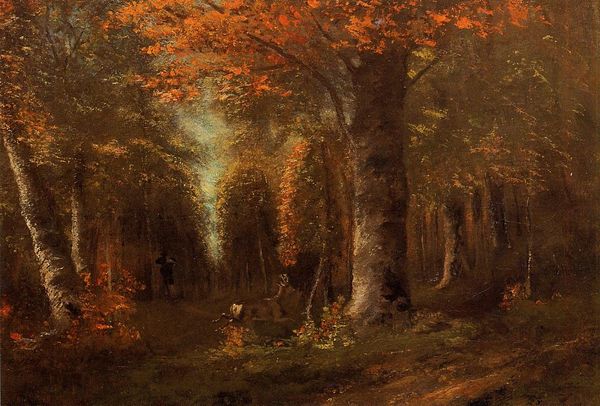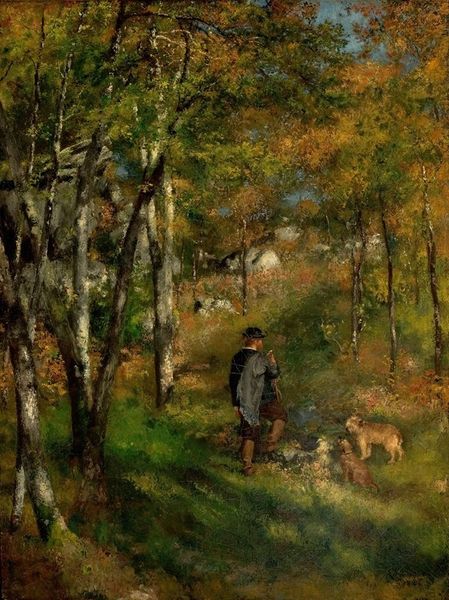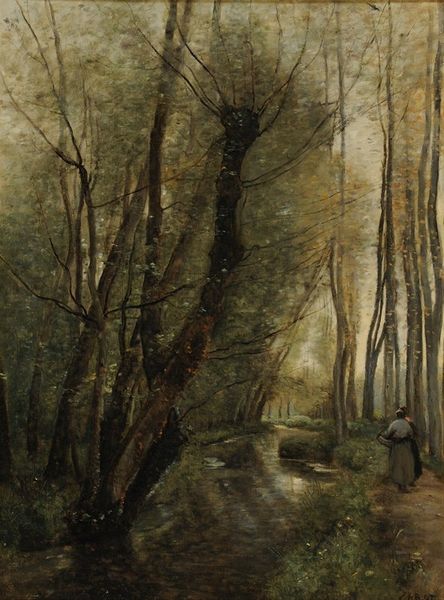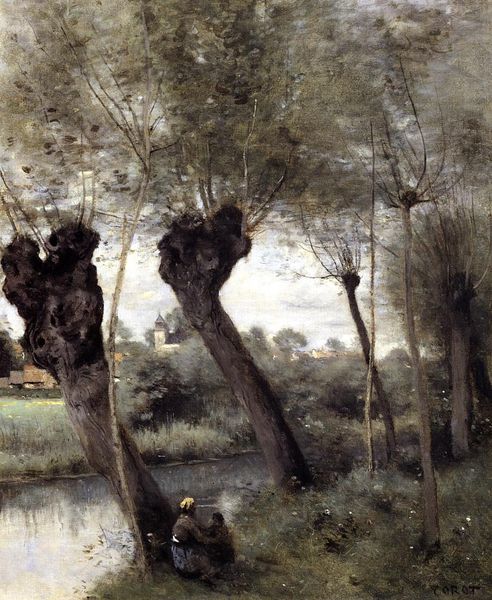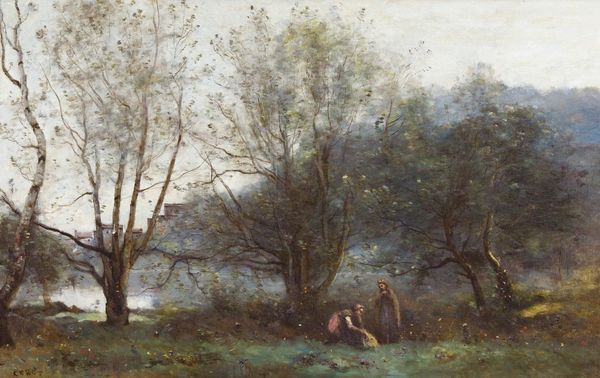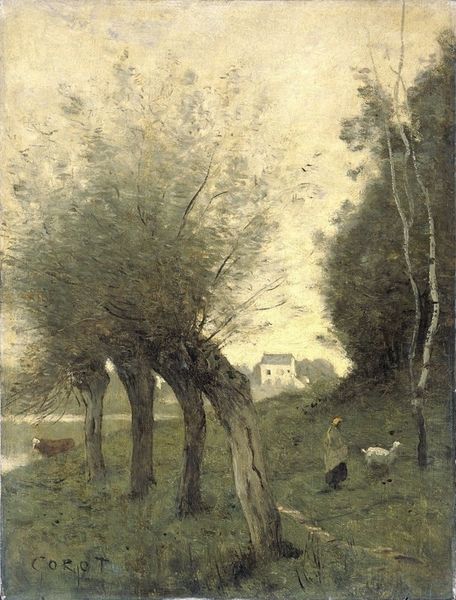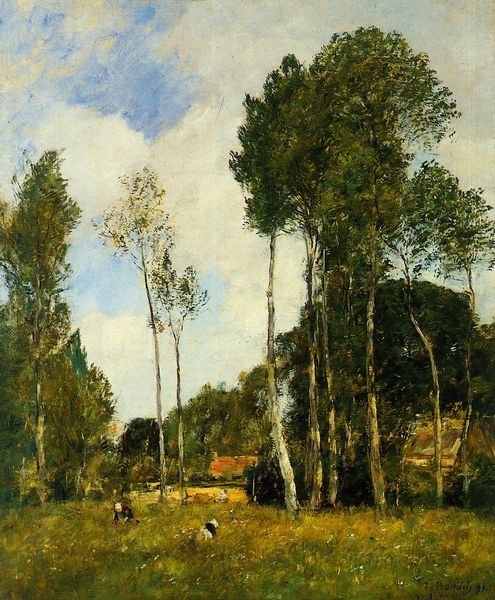
Copyright: Public domain
Editor: So, we’re looking at Camille Corot's "First Leaves, near Nantes," painted around 1855. It’s an oil on canvas, a small, quiet landscape. There’s a certain calmness, almost melancholy to it. How would you interpret this work within its historical context? Curator: The serenity you perceive aligns with Corot's broader engagement with the evolving French landscape tradition. Think of the mid-19th century: industrialization is accelerating, anxieties about urban life are rising. Corot, along with the Barbizon School, offers an idealized, even nostalgic, vision of the French countryside. Consider how this imagery served a social function: reassuring audiences of the enduring beauty and stability of rural France in a time of rapid change. Editor: That's interesting, this wasn't just an objective scene, but an idea of one. What about his choice to paint 'en plein air'? Curator: Absolutely. "En plein air," painting outdoors, was a rising trend, enabling a direct encounter with nature. However, it wasn't purely about objective representation. Consider the politics of viewing— the upper middle class's perception of these rural subjects was often sentimental and didn't address the realities of peasant life, which, you might notice, he only suggests distantly. The hazy light and soft brushstrokes further contribute to this idealization. How do you see that playing out here? Editor: So, it's both a reflection of nature and a commentary on the idealized views of society towards nature and rural life? It's less a mirror and more of a lens. Curator: Precisely! Corot presents a specific version of nature, mediated by his artistic vision and, crucially, the expectations and desires of his audience. Art serves not just to record but to shape perceptions, to create a shared cultural understanding. Editor: That perspective has really changed the way I look at this piece. I hadn't thought about the socio-political forces. Thanks! Curator: And thanks to you, considering these factors help reveal how deeply art is embedded in the social and political fabric.
Comments
No comments
Be the first to comment and join the conversation on the ultimate creative platform.
